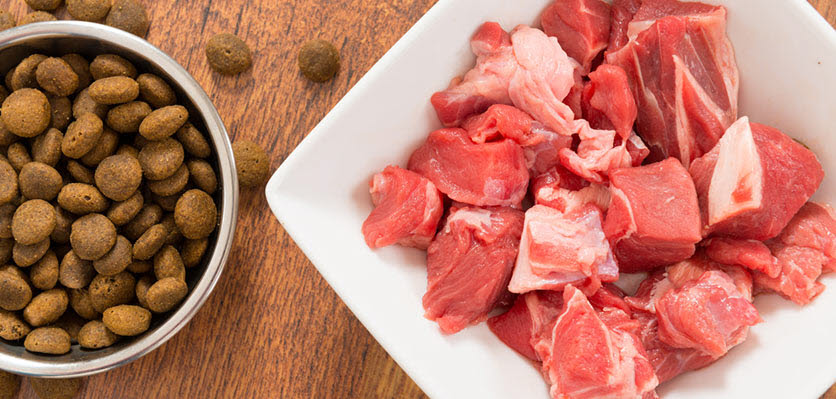
Many people assume that grain-free diets are 'more natural' and carbohydrate-free. They also have the conception that grain-free diets are less likely to cause allergies.
A common question asked in the canine community is: is grain-free dog food better?
The answer is no. There has been no scientific evidence to prove that grain-free diets are better for our pets and unfortunately the growing number of these products on the market is giving the misperception that grain is bad for pets.
Furthermore, there are now concerns about a potential link between dogs eating grain-free dog food and a rare heart condition called dilated cardiomyopathy (DCM).
Some of the common misconceptions about grain-free diets include:
Grains cause food allergies: Food allergies in pets are uncommon and grain allergies are even more uncommon. They are more likely to be caused by an animal protein (e.g. chicken, beef or lamb).
Grains are used as fillers in pet foods: The term 'filler' indicates there is no nutritional value. Various grain products provide protein, which may be easier for the pet to digest than some proteins from meat. Most dogs and cats (greater than 90%) can easily utilise and digest nutrients from grains normally found in pet foods.
Grains cause gluten intolerance: Coeliac disease is an inherited autoimmune disease seen in humans that have been associated with sensitivity to gluten proteins in wheat and grains, such as barley and rye. Gluten intolerance is extremely rare in dogs and nonexistent in cats.
Grain-free pet foods are carbohydrate-free: Grain-free pet foods often contain carbohydrates from other sources such as sweet potatoes, which have a higher carbohydrate level than corn. Grains are carbohydrates, which are an important energy source, and one of the six basic nutrients required for a healthy life (i.e. water, protein, fat, carbohydrates, vitamins, minerals.)
Remember, there is no scientific evidence to suggest that grain-free diets offer more health benefits than a diet with grains, but if you need more information you should ask your veterinarian.
So what should I feed my dog?
When it comes to choosing a healthy diet for your pet, your veterinarian will be able to give you educated information that has scientific backing. They will recommend a premium diet that is ‘balanced’ and ‘complete’ and can also recommend the most suitable diet for your pet based on their stage of life and medical history.
If your pet is young, old, overweight, underweight, arthritic or suffering from diseases such as kidney or urinary tract disease, your veterinarian will guide you in the right direction.
I want to make sure I’m feeding my pet an all-natural diet
Many pet food manufacturers promote their food as being 'superior' for containing 'all-natural ingredients'. All of the foods recommended by your veterinarian contain natural ingredients and these are precisely balanced for optimum nutrition. This means your pet won’t receive too little or too much of certain nutrients. This is a claim only particular brands can make.
If you are feeling overwhelmed and don't know where to start with your pet's diet, you should always ask your veterinarian for information. They will be able to help you make the best choice when it comes to your pet’s nutrition.
